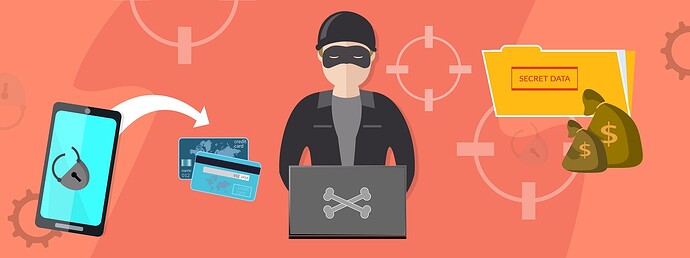Of the 3.2 million fraud cases the FTC reported in 2019, identity theft was the most frequent. According to background check and identity theft resource UnMask, typical signs that one has been the victim of identity theft include not getting your regular mail or bills, seeing unfamiliar withdrawals on your bank account, merchants declining your checks or unfamiliar charges or accounts on a credit report.
Other common signs are related to healthcare. For example, a legitimate claim might be rejected by your health plan because “records” indicate your benefits limit has been exceeded. Your medical provider might bill you for services you don’t remember receiving. Your records might show an illness you don’t have, so your provider will refuse coverage.
Debt collectors might contact you about debts that aren’t yours. The IRS inexplicably rejects your tax return, notifies you that you filed more than one return, or lets you know you failed to declare income from a company, but you’ve never worked for that company. These last signs show you may have been the victim of tax fraud.
Your Credit Report Shows the First Signs
Determining one’s creditworthiness is not the only purpose of a credit report. It shows the first signs of identity theft. Everyone who’s ever leased a car, obtained a mortgage, or even applied for a credit card is familiar with their credit report. The more information you have about it, the more likely you are to detect and neutralize identity theft.
Getting Your Report: The Steps
Pulling your credit report is the first step in checking to see if you’ve become the victim of identity theft. You’ll need your complete, official report to conduct a full and thorough check of any accounts and balances in your name. The entries on the report will include credit inquiries, open credit cards, car loans, student loans, or an account’s payment history.
To get a fraud alert placed on your credit report, contact one of the three main credit reporting agencies. The contact numbers of their fraud departments are 1-888-397-3742 for Experian, 1-800-525-6285 for Equifax, and 1-800-680-7289 for TransUnion. Once you do, the cybercriminal won’t be able to open an account (or any more accounts, in case it’s too late for that) in your name.
The majority of credit card issuers do not hold clients liable for charges criminals incurred because they offer free fraud protection.
The agency will ask you for your name, address, and other personal information to have your identity verified. Then, they will contact the other agencies. There will be a fraud alert by all three on your report. This alert will be seen by any business that wants to extend credit to you over the next 90 days. If you apply for a loan or anyone else does in your name, the lender will contact you to check your identity and to confirm that it was you who actually applied.
Check the Mail
Checking your mail is an important daily action you can take to check for identity theft. Not receiving regular mail from healthcare providers, credit card statements, bills, or other normal mail is a typical cause for concern. Identity thieves will alter the address in your healthcare records or with your credit providers so that they begin getting your personal data.
Receiving an invoice for something you never ordered or credit card statements from accounts not opened by you should raise a red flag. If this happens, someone may be using your data to open accounts illegally.
Finally, be on the lookout for unexpected correspondence from the IRS. They communicate exclusively through the US Postal Service.
File an Identity Theft Report
If you notice any of these signs or have suspicions for any other reason, you might need to file an identity theft report with the Federal Trade Commission. This way, you’re documenting the crime that occurred, and recovering from it will be easier. (Source: thetechrim)

 !
!